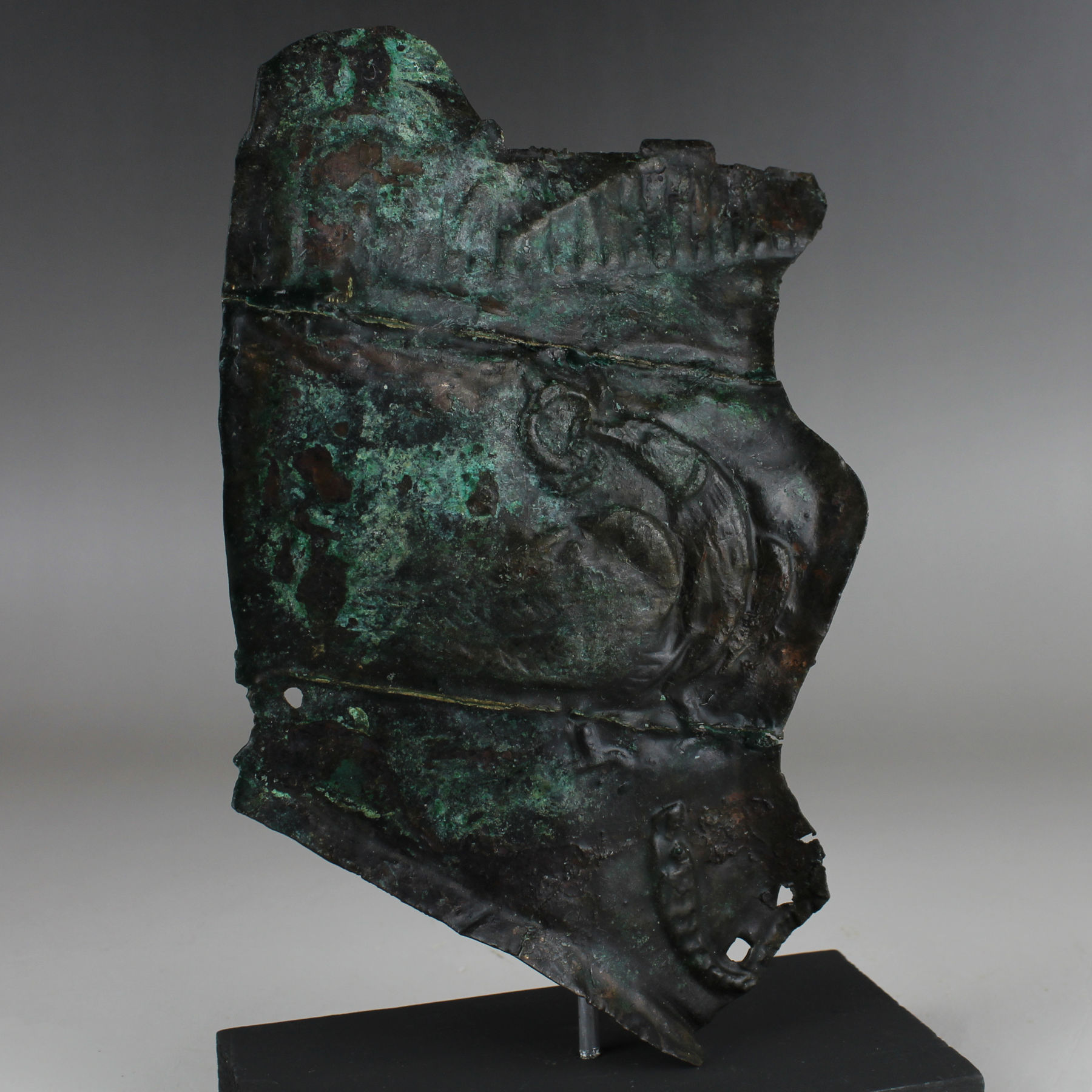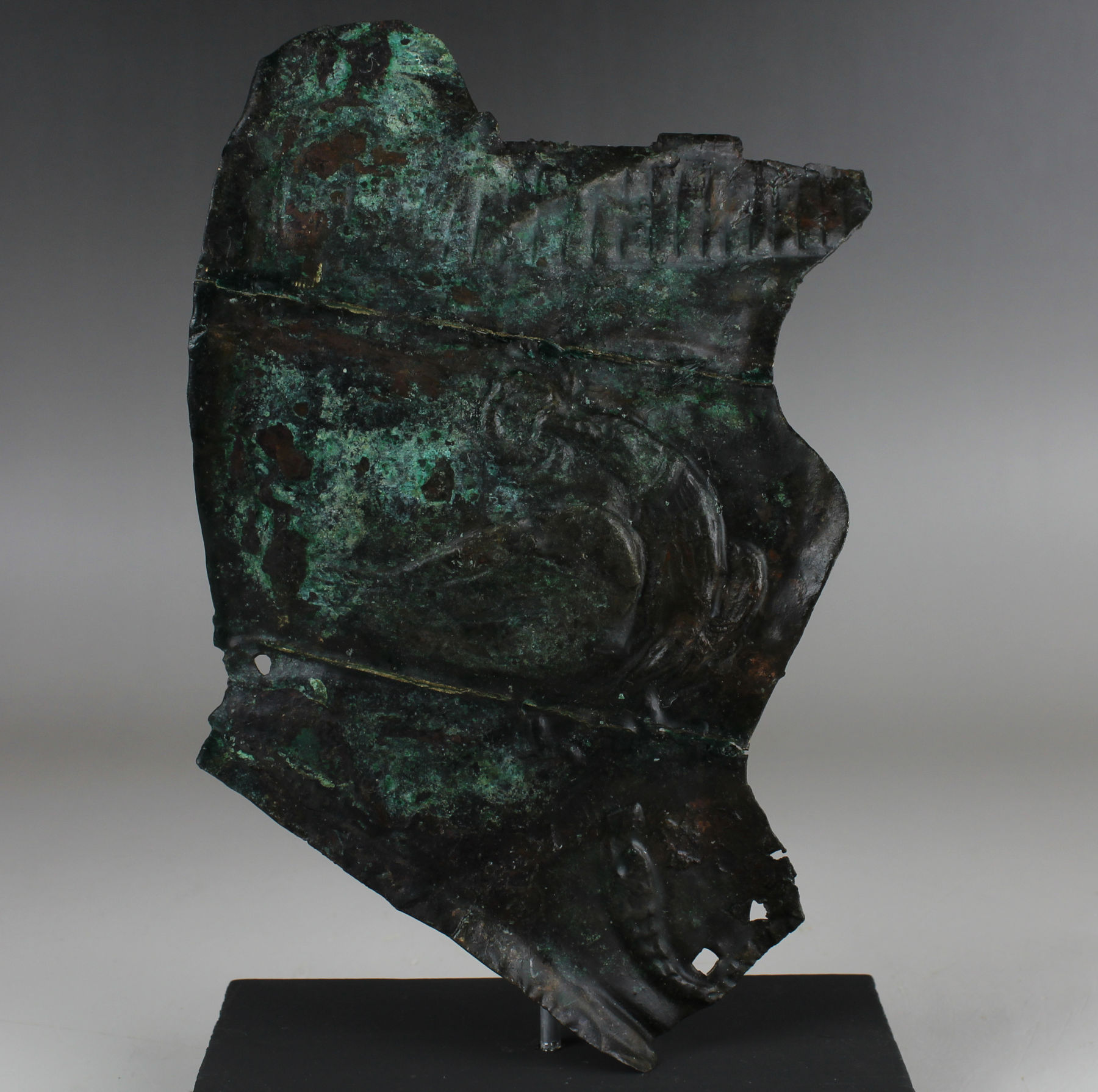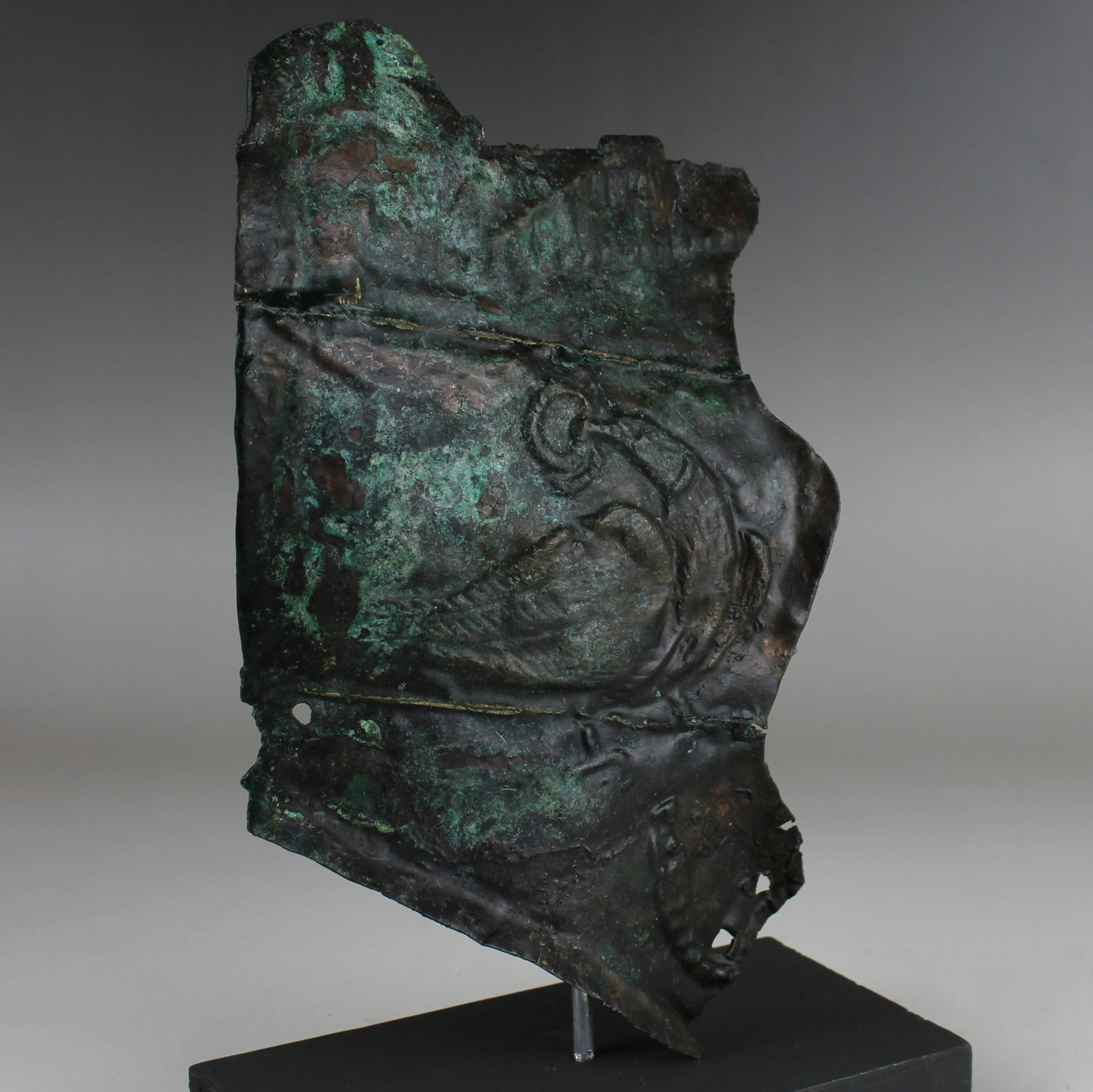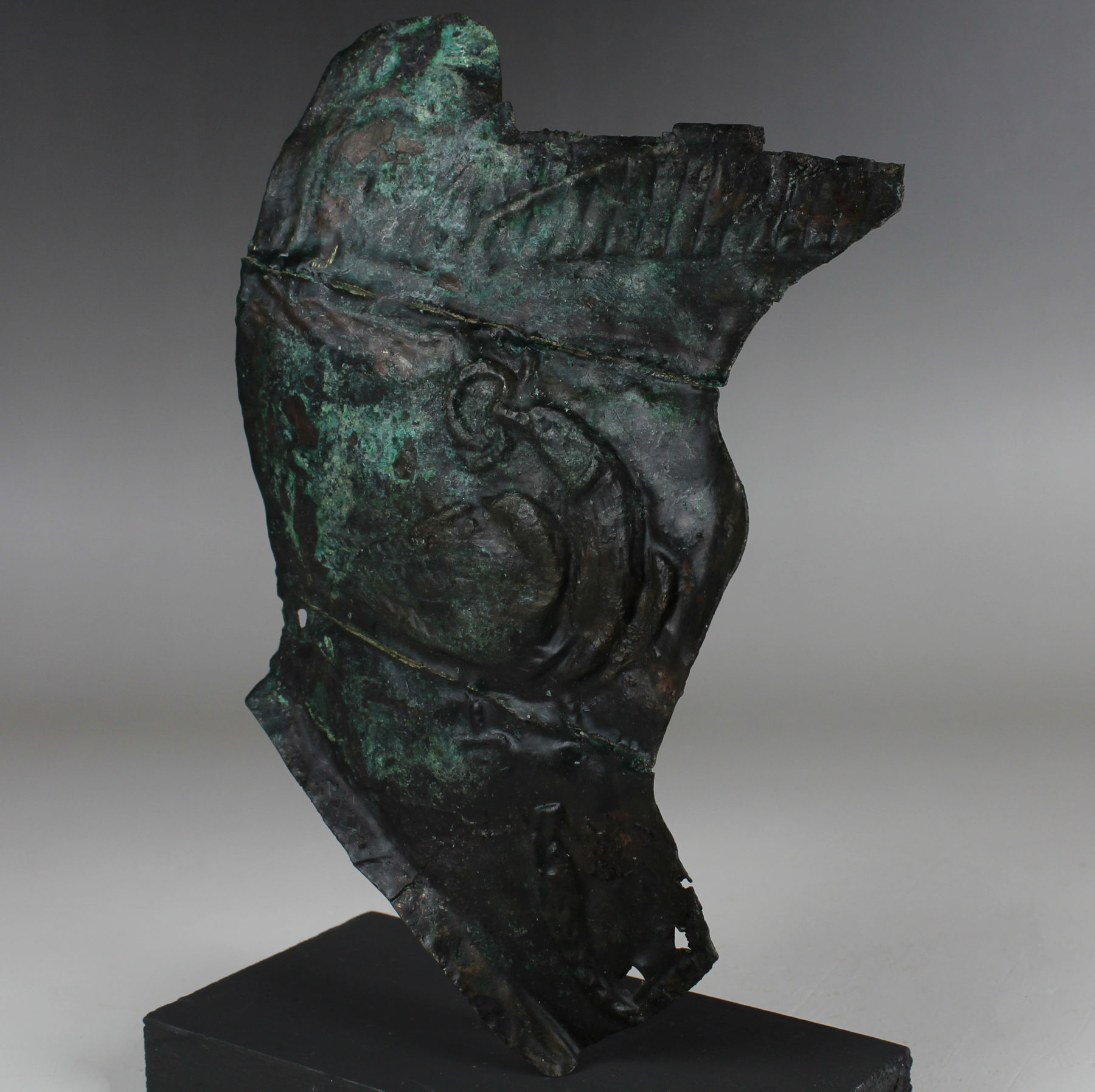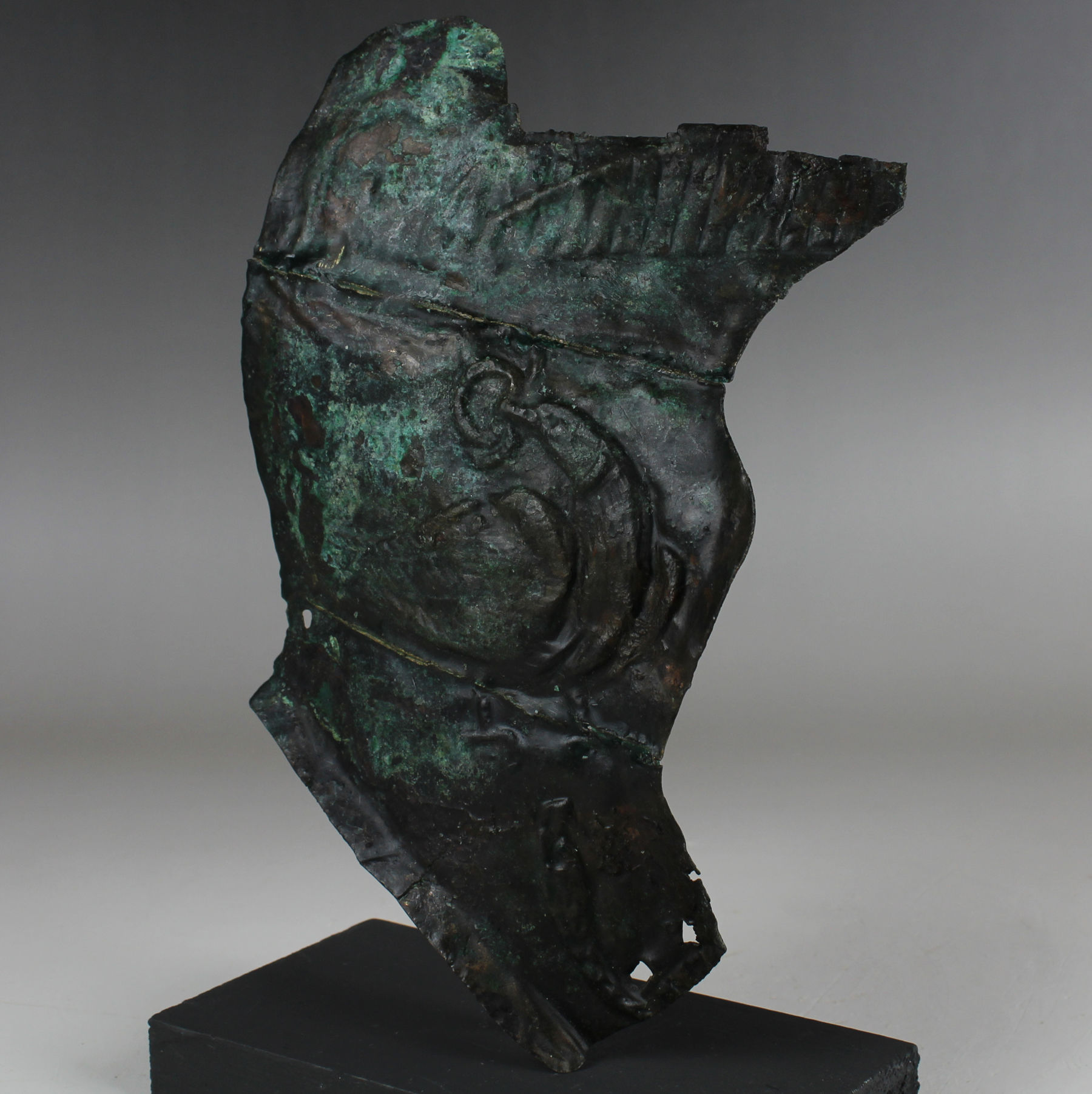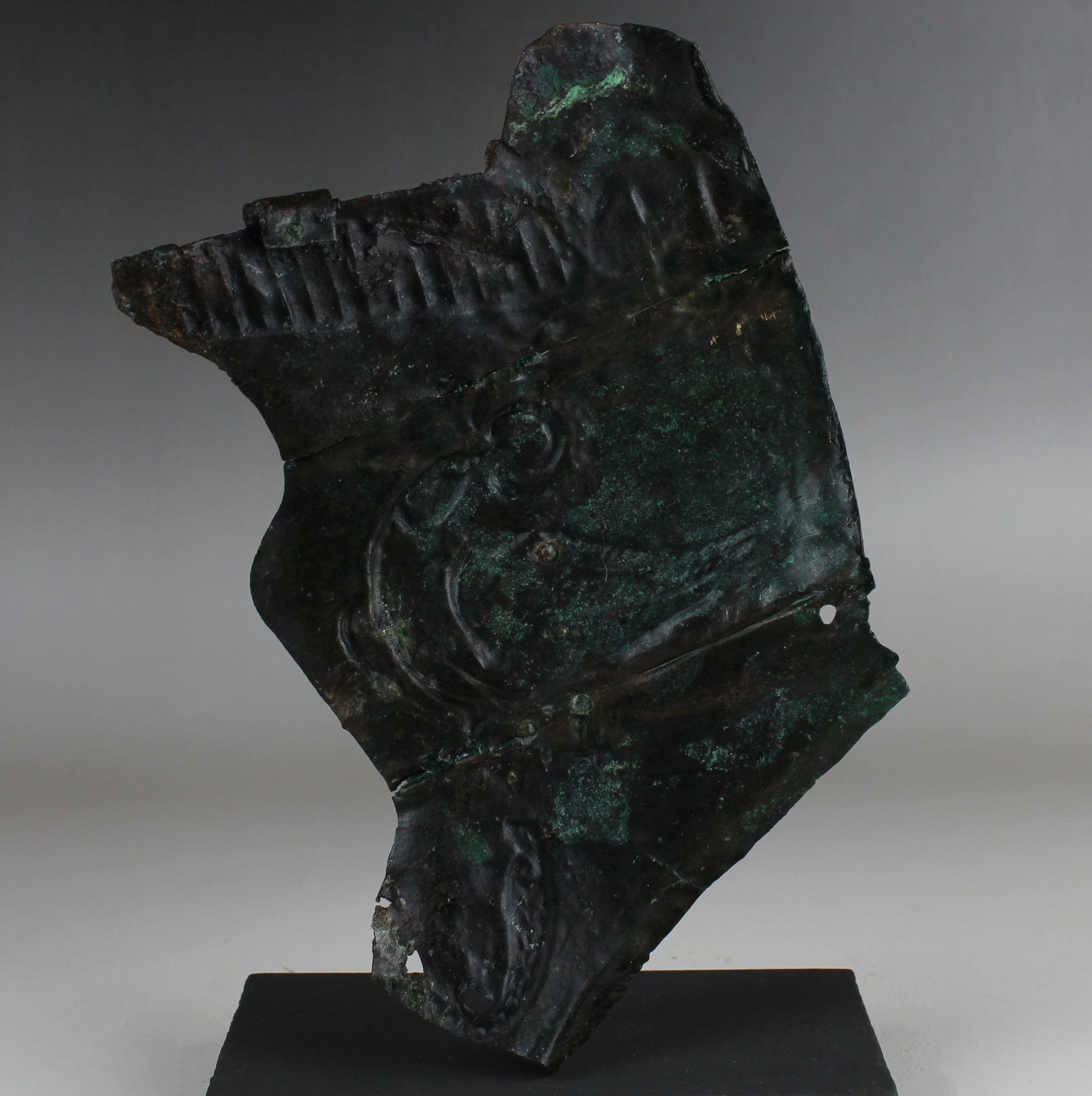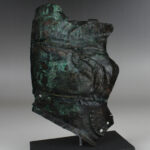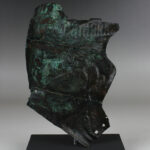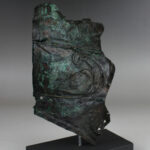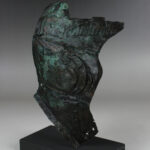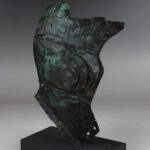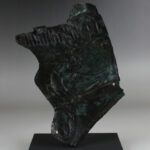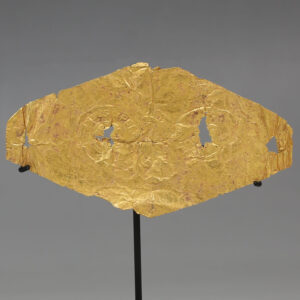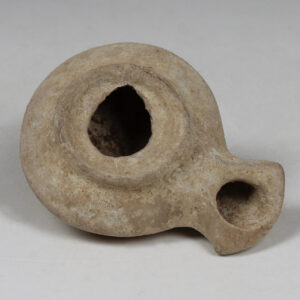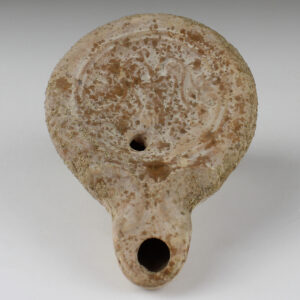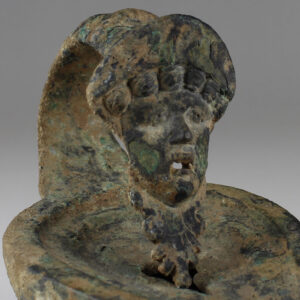Description
| ITEM | Military cheek piece of a helmet fragment with Jupiter’s eagle |
| MATERIAL | Bronze |
| CULTURE | Roman |
| PERIOD | 3rd Century A.D |
| DIMENSIONS | 180 mm x 123 mm |
| CONDITION | Good condition |
| PROVENANCE | Ex Alison Barker private collection, a retired London barrister, acquired between 1960s – 1990s |
Roman military equipment is famous for its abundance of depictions rife with symbolical content. The so-called cavalry sports equipment, which used to be seen as being solely parade armour, can be distinguished from the infantry equipment not only by its function, but also by its design. There are numerous surviving heavily ornamented parts of Roman cavalry equipment and a number of studies have been published on their purpose and decoration. Whether the ornamented equipment belonged to parade armour or was also worn in battle is still under discussion. One of those groups contains the helmets, of which a relatively large number of different variations exist. Apart from the calotte with its neck guard, the loosely attached cheek pieces were also an essential part of the helmet. Cheek pieces as protective elements were used both for infantry and cavalry helmets. Although in some cases it is still difficult to attribute individual examples to the cavalry, due to the higher amount of remains we can be relatively certain that the majority of helmets did indeed belong to the cavalry.
In Greek and Roman mythology, the eagle served as Jupiter’s personal messenger, and it is said to have carried the youth Ganymede to Olympus, where he served as the gods’ cupbearer. Pliny the Elder also describes the eagle as one of the signa militaria, or “military symbols” (NH 10.6). As a symbol of Jupiter’s authority, an eagle would be set free during the consecration of an emperor—a ritual that culminated in his apotheosis. By flying into the air, the eagle was believed to carry the soul of the deified emperor to heaven, thus securing him a place among the gods.


